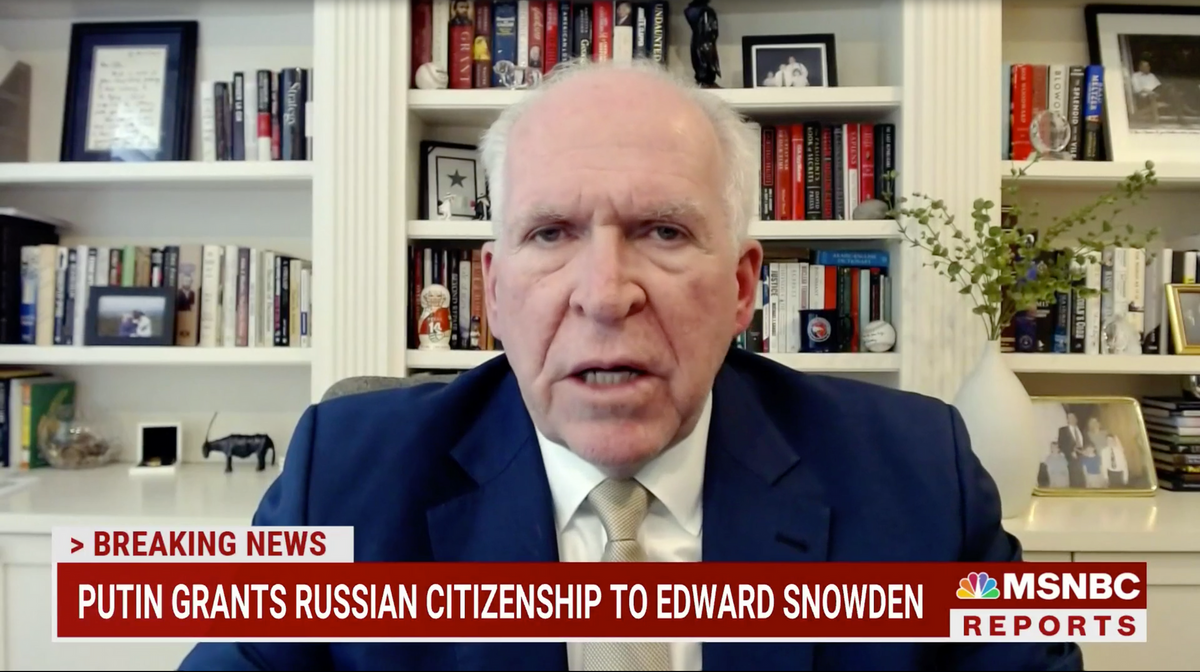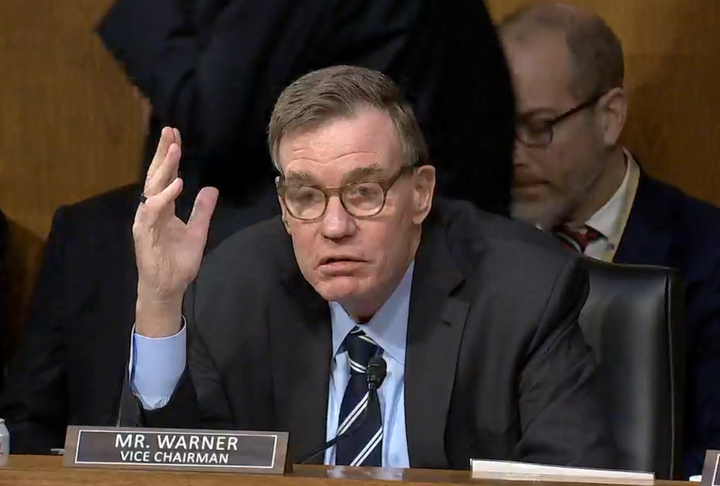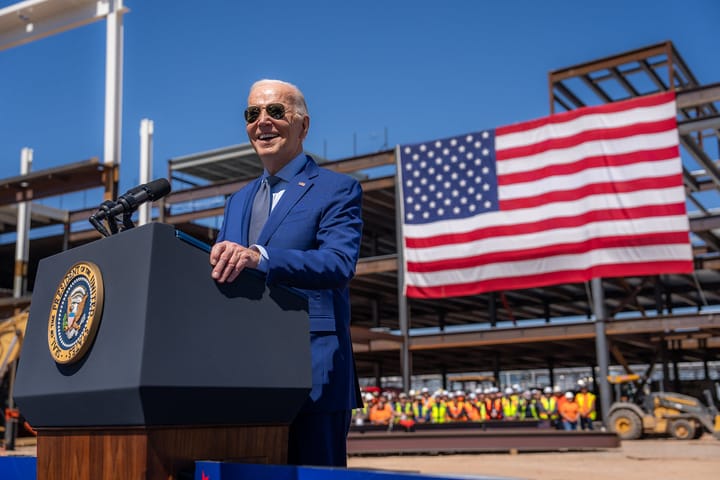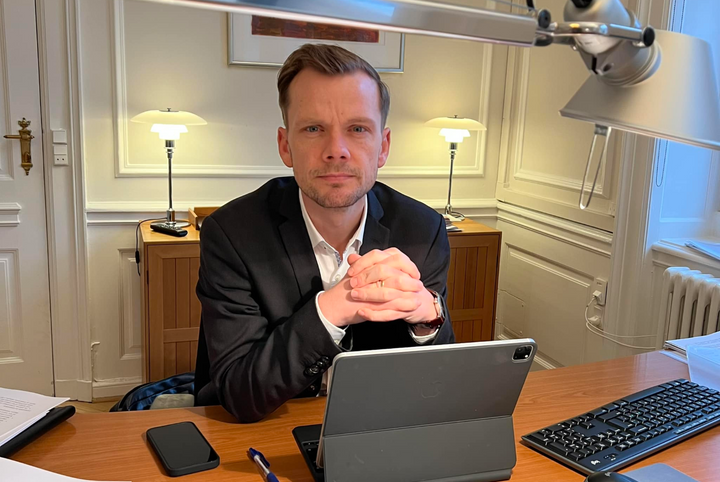A menagerie of Cold War liberals and neoconservative pundits with backgrounds in United States military or security agencies voiced their objections to Russia granting citizenship to NSA whistleblower Edward Snowden.
The response was not as intense as the freakout that occurred when it looked like there was a distinct possibility that President Donald Trump would pardon Snowden. Nonetheless, the hostility expressed illustrated exactly why Snowden has not returned to his home country.
Snowden and his wife Lindsay applied for citizenship in November 2020 to ensure that they would never be separated from their firstborn son. They now have two children.
On September 26, nearly two years later, 72 foreigners, including Snowden, were granted citizenship as part of a decree. He did not denounce, or renounce, his US citizenship. The whistleblower remained a US citizen.
Mike Rogers, a former US congressman and stalwart NSA defender, declared, “With Russia granting Snowden citizenship, Moscow proved what already knew was true: that his treasonous actions directly harmed US security for the benefit of [President Vladimir] Putin’s regime. Perhaps, he’ll now be eligible for mobilization for the regime he serves.”
When he was the chair of the House Permanent Select Committee on Intelligence, Rogers put on a show trial with intelligence officials, including the NSA director. It took place just days after Snowden’s first disclosures in June 2013, and Rogers tried to cast Snowden as a Chinese spy.
“Traitor Edward Snowden has finally been offered Russian citizenship after pretending for years he was not a Russian agent,” sneered Fred Fleitz, a former National Security Council chief of staff and CIA analyst who is the vice chair of the America First Policy Institute’s Center for American Security.
“Now Snowden can advise Putin on the ‘military operation’ in Ukraine. Hopefully a future Russian government will deport him to the US so he can stand trial.”
'It Would Be Justice If Snowden Was Deployed' To Ukraine—And Captured
A common reaction among those upset that Snowden was granted citizenship involved wishing that Putin would conscript him and deploy the NSA whistleblower to the frontline of the war in Ukraine.
This was encapsulated in a comment from Paul Rieckhoff, the founder of Iraq and Afghanistan Veterans of America (IAVA). “In case any of you Snowden defenders still questioned where his loyalty lies—This is Putin playing Putin games. Fuckery always. It would be justice if Snowden was deployed to the front by Russia, captured by Ukraine, and returned to the US to be tried.” [fingers crossed emoji]
Rieckhoff added emphasis to the remark with a fingers crossed emoji.
In case any of you Snowden-defenders still questioned where his loyalty lies.
— Paul Rieckhoff🇺🇸🇺🇦 (@PaulRieckhoff) September 26, 2022
This is Putin playing Putin games. Fuckery always.
It would be justice if Snowden was deployed to the front by Russia, captured by Ukraine, and returned to the US to be tried.🤞🏻 https://t.co/aubr6jA6L2
Former CIA director John Brennan who is a national security pundit for MSNBC was asked by host Andrea Mitchell, “what is more dangerous? Edward Snowden now a Russian citizen with whatever knowledge he may have had already put out, or former President Donald Trump, who says he can declassify by just doing sort of a Carnac the Magnificent, and thinking that something is declassified.”
It was a perfect setup for Brennan to speak to the Vote Blue No Matter Who crowd and help them figure out if their loathing for Trump should be balanced out with some disgust for Snowden.
Though Brennan did not really answer the question, he said Snowden “has been traitorous since he left the United States several years ago. I’m sure he has shared with the Russians probably all that he already knows about US intelligence.” He then called Trump “delusional” without saying if one was more “dangerous” than the other.
Snowden made it clear in 2013 that he took none of the secret files he shared with journalists with him when he fled Hong Kong.
Joe Biden, when he was vice president in President Barack Obama’s administration, was directly involved in contacting world leaders in June 2013 to discourage them from offering Snowden asylum. The State Department revoked his passport, and he became trapped in a Moscow airport.
In his memoir, The World As It Is, Obama national security adviser Ben Rhodes shared, “Reportedly, [Snowden] wanted to go to Venezuela, transiting through Havana, but I knew that if the Cubans aided Snowden, any rapprochement between our countries would prove impossible.”
Rhodes pulled Alejandro Castro, a Cuban minister, aside and said he had a message from Obama. “I reminded him that the Cubans had said they wanted to give Obama ‘political space’ so that he could take steps to improve relations. ‘If you take in Snowden,’ I said, ‘that political space will be gone.’”
Threats to leaders, particularly against countries in the Global South, worked. US government officials succeeded in limiting Snowden's choices to returning home for a trial that could result in a lengthy prison sentence or living in a country, where it would be easy to undermine his whistleblowing by smearing him as an agent of Russia.
'All Part Of A Years-Long Russia-Supported Effort To Upend The West'
Putin granting Snowden citizenship was an invitation for some prominent individuals to use their influence to promote wild conspiracy theories about how this was all part of some grand plan put in action nearly a decade ago.
Dave Troy, a New America Foundation think tank fellow, proclaimed, “It’s time for us to come to grips with the fact that the Snowden, [Glenn] Greenwald, [Julian] Assange ops are all part of a years-long Russia-supported effort to upend the West.” His tweet received over 22,000 likes.
It’s time for us to come to grips with the fact that the Snowden, Greenwald, Assange ops were all part of a years-long Russia-supported effort to upend the West.
— Dave Troy (@davetroy) September 26, 2022
The plea for people to connect the dots was cheered by Republican Representative Adam Kinzinger, who has won respect among the Democratic Party establishment (much like Representative Liz Cheney) simply because he voted to impeach Trump.
“This is absolutely correct. All those Rand Paul-types who praised these traitors were damaging America’s security. Snowden revealed so many secrets to Russia it likely cost American lives,” Kinzinger contended. “Secrets that had nothing to do with American citizens’ information. Enjoy Russia clown.”
US security agencies never have specifically suggested that Snowden’s whistleblowing resulted in the death of Americans.
As for the idea that his whistleblowing did not involve American citizens’ information, Kinzinger knows that is not true. In 2015, he voted for the USA FREEDOM Act. It was modest surveillance reform passed in response to the backlash following exposure of the NSA’s mass phone surveillance program, which a federal appeals court concluded was illegal.
Kinzinger supported the legislation, despite being a big supporter of the PATRIOT Act that enabled the rise of unchecked surveillance of all communications.
For what it's worth, numerous establishment media organizations published headlines that referred to Snowden as a "US whistleblower."
The Washington Post, on the other hand, which won a Pulitzer Prize for their reporting on the Snowden documents, refused to call their source a whistleblower.
The 'Fateful Choice' Made By Snowden
NSA whistleblower Thomas Drake, who partly inspired Snowden to blow the whistle, had an appropriate response to the charlatans posturing as experts.
Drake noted that Snowden “faced decades in prison as a consequence of disclosing to the press” documents that, though highly classified, were in the public interest because they contained details of “far-reaching and indiscriminate mass surveillance.” It exposed the security state’s “‘collect it all’ mentality.”
Appears that some armchair analysts—comfortably ensconced w/ their own convenient confirmation biases—allege as absolute fact w/out proof that @Snowden committed espionage at behest of Russia. It is a convenient narrative & framing to label him a spy. 1/
— Thomas Drake (@Thomas_Drake1) September 27, 2022
The US government predictably charged Snowden with violating the “draconian, strict liability Espionage Act.” He could not raise a public interest defense to the accusations that he committed a “national security crime” while “exposing state crimes.”
Drake added, “He left the US in an admittedly desperate but understandable attempt—with no guarantees—to seek some measure of safety and freedom from the long arm of US, and the real threat of rendition.”
Faced with the “stark dilemma” of life in Russia after failing to secure asylum elsewhere, according to Drake, Snowden chose to live “under less than ideal conditions” so his family could avoid the hardship and suffering that families have endured when their loved ones are prosecuted unjustly under the Espionage Act.
“People can argue [the] merits of him staying and facing the music in US, even if he was looking at [the] near certainty of many years in prison. But given what he saw happen to myself and other whistleblowers, he made the fateful choice to leave US and live with those consequences and realities,” Drake concluded.





Comments ()